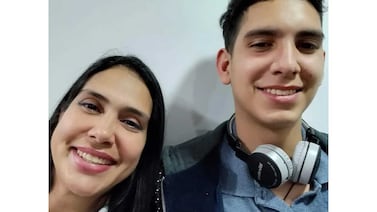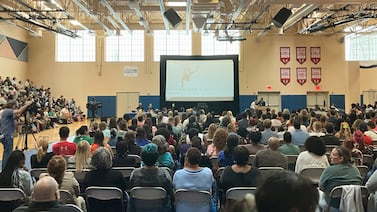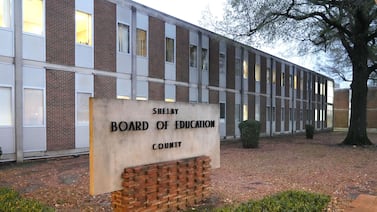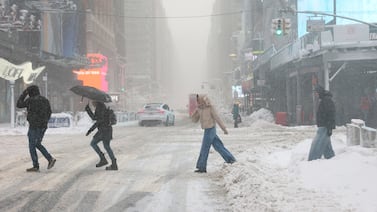Sign up for Chalkbeat Chicago’s free daily newsletter to keep up with the latest news on Chicago Public Schools.
Chicago Public Schools high school students have access to free virtual therapy through an agreement with a for-profit company that carries no cost to the district. But a group of student privacy and mental health advocates are raising flags about the contract, arguing it may violate an Illinois student privacy law.
CPS and the company, Hazel Health, say the provider safeguards student data and has helped the district tackle a teen mental health crisis at a time of limited access to care, threatened further by looming Medicaid cuts.
“CPS has worked hard to ensure all CPS high school students have access to free, high-quality online therapy and counseling while maintaining student safety, privacy, and trust,” a district spokeswoman said in a statement.
But student privacy advocates are urging the school board to drop or overhaul the district’s agreement with Hazel Health. They say the company’s parent consent form raises concerns about the possible use of student data to develop its product in violation of the state’s online student privacy law.
“If these services are for the students, they shouldn’t be guinea pigs,” said Cassie Creswell of the nonprofit Illinois Families for Public Schools. “They shouldn’t be the data that is generating tech profits.”
The advocates say the district should prioritize expanding its stable of social workers and clinicians and working with local health centers, where staff might be more attuned to students’ communities and experiences.
School-based teletherapy exploded nationally during the pandemic, when school districts spent millions in federal COVID aid on these services as youth mental health needs skyrocketed. In Chicago, officials have pointed to results from an annual survey showing that roughly 40% of high school students report feeling persistent sadness and hopelessness and more than 15% seriously considered suicide.
Chicago is not alone in turning to teletherapy at a time when local providers have struggled to meet a massive rise in demand. As of the 2023-24 school year, 13 of the 20 largest school districts had added virtual mental health therapy for students. Some leaned on local providers, but others enlisted for-profit companies, with San Francisco-based Hazel Health emerging as a dominant player who licensed therapists serve 5 million students by its own account.
CPS said it could not provide up-to-date data on the number of students served and sessions completed since the initiative with Hazel Health launched in March. Data as of September obtained by advocates through a public records request showed that at that point, about 250 students had completed roughly 920 sessions.
In Chicago, the company charges private insurance or Medicaid for the services; an agreement with health insurance behemoth UnitedHealthcare helps with the cost. But the services might not remain free to CPS indefinitely. The company has said it is speaking with insurers, city, and state leaders about the possibility of covering services in CPS and other Illinois districts with grants, state dollars, or other funding.
Creswell and other advocates recently wrote to district interim CEO Macquline King and school board members urging them to discontinue the contract, or at least push for revisions to better protect student privacy.
Currently, the company’s consent form for families says Hazel Health can use student information for “the development and improvement of software, hardware, and related tools designed to improve services,” which Cresswell said could run afoul of the state’s Student Online Privacy Protection Act.
Kyle Hillman of the Illinois chapter of the National Association of Social Workers, another group that signed the letter to board members, said school-based social workers develop trusting relationships with students and work closely with educators. They can also bill Medicaid for services, which Hillman said is a better use of these taxpayer resources. Hillman said he doesn’t have details about Hazel Health’s services, but at some privately funded providers, a focus on profits has meant large caseloads and brisk staff turnover.
“Our position has always been that for-profit mental health is not in the best interest of kids,” he said.
In written responses to Chalkbeat, a Hazel Health spokesman stressed the company does not sell, share, or use student data for commercial purposes and safeguards it carefully in keeping with state and federal law. It said more than 70% of CPS schools have connected students with the service and feedback has been overwhelmingly positive.
The company did not provide information about its therapists’ caseloads. But in a letter to advocacy groups, the CPS Office of Health and Wellness wrote that Hazel aims for 25 client hours per therapist per week to allow a lot of time for prep and supervision. That letter also noted the high caseloads of more than 1,000 students per school social workers and 385 students per counselor on average across the country.
Karen Foley, the executive director of the nonprofit Juvenile Protective Association, which provides therapy at 22 mostly elementary Chicago schools, says the group of Chicago advocates has raised valid questions. Her organization keeps therapist caseloads to 20 students, who have complex mental health needs. It develops relationships with students and their families over time, and works closely with their teachers and principals.
At the same time, Foley says, young people are facing a mental health crisis, with stepped-up immigration enforcement adding to longstanding stressors, such as poverty and gun violence. She said thousands of Chicago students are struggling with mental health needs that might not be severe or visible enough to make them a priority for limited services — a void that Hazel Health’s therapists could fill.
“I believe having interested adults listening to kids is always a good thing,” she said. “We should all be trying lots of different things.”
The no-cost contract between CPS and Hazel Health, which recently absorbed two other teletherapy startups, will automatically renew in December.
Board member Che “Rhymefest” Smith, who flagged student mental health as a priority during his election campaign last year, said he said he is doing more research to decide if the board needs to rethink the contract with Hazel Health.
He is taking the advocates’ concerns seriously, but he’s also heard from school employees who’ve said the free therapy has been welcome “at a time of scarcity, when families don’t know where to get their students’ needs met.”
Chalkbeat Chicago bureau chief Becky Vevea contributed to this report.
Mila Koumpilova is Chalkbeat Chicago’s senior reporter covering Chicago Public Schools. Contact Mila at mkoumpilova@chalkbeat.org.







